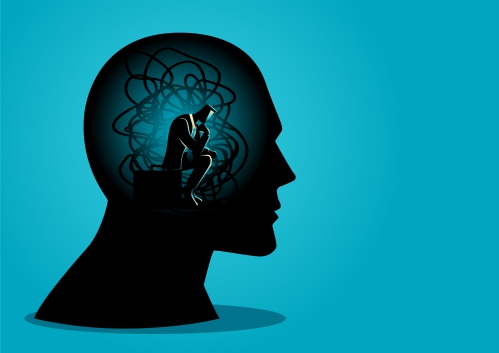Anxiety disorders, panic attacks, phobias, post-traumatic stress disorder
Description : The exact cause of anxiety is currently unknown, but with the appropriate treatment most people can
Article Details :
What are anxiety disorders?
Anxiety is a normal emotion that everyone feels now and then. It is your body’s natural response to stress which can be in various forms. For example, going to your exams, job interview or giving a speech in front of your friends.
However, if your level of anxiety rise to a point where you cannot perform your normal activities (for example, going out of the house, entering the elevator or going to places where there are many people) or last longer than 6 months, then you may be suffering from an anxiety disorder. Fortunately, with the appropriate treatment most people can overcome those emotions and regain their normal lives. According to the American Psychiatric Association, women are more likely to be diagnosed with an anxiety disorder than men.
What are the types of anxiety disorders?
Anxiety has a central role in various different disorder such as:
- Social anxiety disorder: also known as social phobia, is when you feel very anxious or extreme fear about going out in social situation as you apprehend the judgement of others about you.
- Panic disorder: this is when you experience repeated panic attacks that strikes at random. You may be always on your guard awaiting the next episode. During a panic attack you may have chest pain, feel palpitations, sweat or even feel like you are having a heart attack.
- Specific phobias: in this condition you feel extremely anxious about a specific object or situation (for example, insects, being at heights or on plane). This fear will prevent you from doing activities that any other person finds normal.
- Generalized anxiety disorder: this is when you feel excessive, unreasonable worry and stress with little or no reason.
- Obsessive-compulsive disorder: in this condition you have a tendency towards excessive orderliness, perfectionism and exceptional attention to detail and tend to perform specific and repeated behaviours (almost like a ritual).
- Separation anxiety disorder: this is a disorder characterized by recurrent and excessive fear of being away from home or loved ones.
- Illness anxiety disorder: also known as hypochondriasis or health anxiety, is when you excessively worry that you are or may become ill even though there are no physical symptoms.
- Post-traumatic stress disorder (PTSD): this usually occurs in people who have experienced or witnessed a traumatic situation such as a car accident, death of a loved one, war or rape. The person often relieves the same experience through nightmares and flashbacks affecting his daily activities.
What are the causes of anxiety?
The exact cause of anxiety is currently unknown. However, scientists think that it is a combination of environmental stress, changes in the brain and even your genes. Stress from a job, school, financial, health and interpersonal relationship problems can significantly contribute to anxiety disorders.
Who are at risk for anxiety?
There are several factors which can lead to anxiety. Some of them are:
- Genetics: if you have a family history of anxiety disorders, you have a higher chance of suffering from anxiety one day.
- Trauma: High stress events like a car accident or sexual abuse can lead to an anxiety disorder (for example, post-traumatic stress disorder).
- Absent parent: losing a parent or being away from your parents for a long period of time at a young age can predispose you to have an anxiety disorder. In addition, other family problems such as alcoholism, violence and sexual abuse can also strongly contribute.
- Depression: if you have depression you are also most likely to be suffering from an anxiety disorder.
- Constant stress: ongoing worry about financial issues or work can lead to anxiety. Furthermore, a nerve-racking environment like a warzone is also a predisposing factor.
- Self-harm: This behaviour is linked with mental problems such as PTSD and anxiety.
- Personality: Certain personality traits can facilitate the development of an anxiety disorder such as moral inflexibility, obsession with details, oversensitivity to criticism and timidity in social situation.
- Loneliness: this is a feeling that everyone must have felt at some point in their lives. However, letting it linger will eventually lead to an anxiety disorder.
- Substance abuse: anxiety disorders are strongly linked to substance abuse. For example, the use of drugs may cause shame upon the person leading to anxiety.
- Physical illness: conditions like heart disease, diabetes, hypertension and asthma are often associated with anxiety.
Signs and symptoms of anxiety
The sign and symptoms of anxiety build up slowly over time and these include:
- Having a sense of panic or imminent danger
- Feeling nervous, tense or agitated
- Having an increased heart rate
- Trembling
- Sweating
- Rapid Read more




